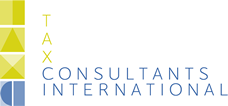Payroll & HR services Global Mobility Services International labor and cross border assignments Payroll & HR
Foreign employers need to register in the Netherlands if they require a Dutch payroll for their employees
In the Netherlands, there is an obligation to withhold Dutch wage tax from the salary of the employee in case the following three elements are present:
- There is an employee who is liable to taxation and/or social security in the Netherlands.
- This employee receives a salary
- There is a withholding agent present
The obligation for a non-Dutch entity to register as a withholding agent in the Netherlands potentially starts as soon as the employees start working and Dutch income tax and social security premiums are due. A withholding agent will also be required to process a Dutch payroll to base the calculation and payment of Dutch wage tax and/or social security premiums.
The registration of a foreign company as a withholding agent in the Netherlands is obligatory if:
- The employer has a taxable presence in the Netherlands, meaning it has a permanent establishment or permanent representative or,
- The employer is deemed to have a permanent establishment in the Netherlands.
In some cases, the employer is deemed to have a permanent establishment in the Netherlands regardless of its presence. This applies to foreign companies directed at lending out personnel, such as employment agencies, P&O, and payrolling companies.
When there is no legal obligation to register as a withholding agent, the foreign company can opt for this voluntarily, and the salary administration of the Dutch employee(s) will then be processed in the Netherlands. This happens because a registered employer in the Netherlands is a pre-condition for the application of the so-called 30% regulation (a special tax regime for incoming employees) or when the employer and/or employee prefer the "pay as you earn" system instead of the payment of taxes upon assessment of the employee(s) for the Dutch income tax.
The obligation for the tax or social security premiums will only occur if certain conditions are met. There are various situations whereby employees of foreign employers are present in the Netherlands without Dutch payroll tax and/or Dutch social security premiums becoming due. The best example of such exclusion is foreign-based employees of foreign employers visiting the Netherlands on a business trip. More technical exclusions are based on applicable tax treaties, social security treaties, or the EU Social Security Ordinance.
The most common exclusion for the levy of Dutch income tax/wage tax applies to foreign employees (i.e., without tax residence in the Netherlands) of a foreign employer working less than 183 (consecutive) days in a year in the Netherlands, without their salaries being charged to a Dutch establishment of the employer or a Dutch employer. The exact parameters of this '183-day rule' can vary per tax treaty, and it should be considered that the Netherlands applies a 'substance over form' approach when determining who the employer is for tax purposes. Typical payroll constructions and setups of independent contractors may be vulnerable to scrutiny from the Dutch tax office.


.png)




